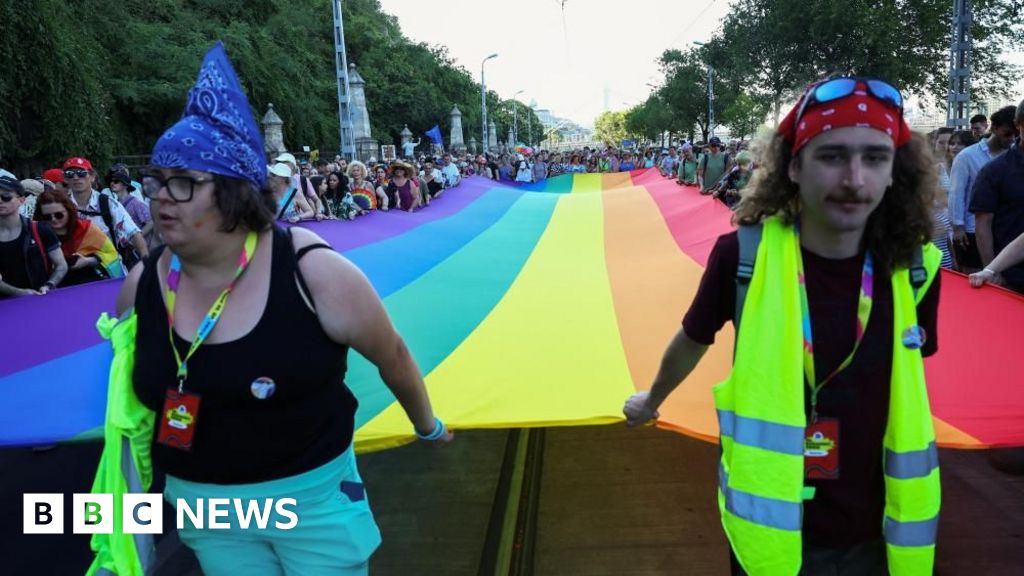
BUDAPEST – In a vibrant display of unity and defiance, thousands gathered for Budapest Pride, transforming the city into a colorful celebration of human rights and solidarity. The event, which took place under the searing summer sun, was seen as a direct response to Prime Minister Viktor Orban’s controversial policies.
Immediate Impact
The streets of Budapest were alive with music and laughter as between 100,000 and 200,000 participants, predominantly young people, marched from Pest to Buda. The journey, which typically takes 20 minutes on foot, stretched to three hours as revelers danced and sang their way across the iconic Elizabeth Bridge.
Last year’s attendance was just 35,000, highlighting a significant increase in participation.
Many attendees carried banners mocking Prime Minister Orban, expressing their opposition to his longstanding policies. “In my history class, I learnt enough to recognize a dictatorship. You don’t need to illustrate it – Vik!” read one of the handmade banners.
Key Details Emerge
This year’s Pride was not just a celebration of the LGBT community but a broader demonstration of human rights. Budapest Mayor Gergely Karacsony addressed the crowd, emphasizing the event’s significance. “We don’t exactly look as though we were banned!” he exclaimed, highlighting the city’s defiance against governmental restrictions.
The event’s success was a notable achievement for a city hall often at odds with the central government. “In fact, we look like we’re peacefully and freely performing a big, fat show to a puffed-up and hateful power. The message is clear: they have no power over us!” Karacsony continued.
Background Context
The march faced potential cancellation due to a new law passed by Orban’s Fidesz party, which equates homosexuality with paedophilia and restricts its portrayal in areas accessible to children. However, the Budapest mayor countered the ban by citing a 2001 law that allows council-organized events to proceed.
Finnish MEP Li Andersson, present at the march, criticized Orban’s use of family values as a pretext to impose the ban. “It’s important to emphasize that the reason why we are here is not only Pride – this is about the fundamental rights of all of us,” she stated.
By the Numbers
162 new police and customs officers graduated in a ceremony attended by Orban.
While Orban attended a separate event, the police maintained a discreet presence at the Pride march, ensuring the event proceeded without incident. Temporary cameras installed by police captured the proceedings, underscoring the government’s ongoing surveillance efforts.
Regional Implications
The Pride march comes amid growing tensions between Budapest’s progressive leadership and Orban’s conservative government. The event has been seen as a pivotal moment in the city’s ongoing struggle for autonomy and human rights.
Meanwhile, Orban and other Fidesz officials attempted to reclaim the “pride” narrative by posting family photos on social media. “Post a picture, to show them what we’re proud of,” urged Alexandra Szentkiralyi, a Fidesz leader, in a Facebook post.
What Comes Next
As Budapest Pride concludes, the city’s residents and leaders remain vigilant, aware of the ongoing challenges posed by Orban’s administration. The event’s success marks a significant victory for human rights advocates, but the future remains uncertain as both sides prepare for the next phase of their ongoing confrontation.







